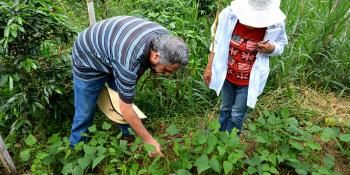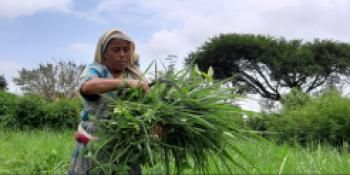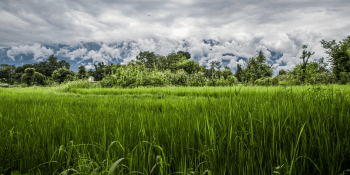Photo-story: From farm-plot to climate policy progress for East Africa
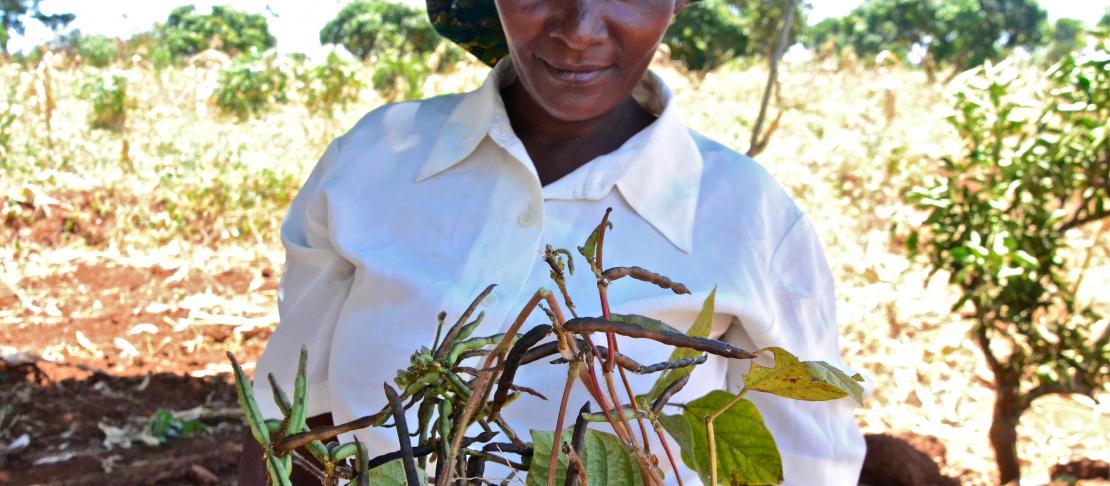
What does the CCAFS East Africa program research and development work look like in practice?
What persuades smallholders and policy-makers to move from theory to practice on climate-smart agriculture? For the CGIAR Research Program on Climate Change, Agriculture and Food Security (CCAFS) East Africa program, the notion ‘seeing is believing’ seems to be doing the trick in the region.
The program works in particularly climate-vulnerable areas in Kenya, Uganda, Tanzania and Ethiopia, supporting farmers as they champion climate-smart agriculture techniques. Through training and resources from partners, local organisations, research programs and ministries, farmers evaluate which practices and hybrid seeds are most suitable for their areas and social and economic situation. The gathered knowledge combined with ongoing participatory research activities help guide and inform interested policy-makers, development organisations and neighbouring farmers as they learn about the region's climate-smart villages.
For people who have never visited a climate-smart site, which can be found in all of CCAFS five regions, this is a photo-story depicting Kenya’s climate-smart village activities.
Photos illustrate progress on trial farms, process to scale up climate-smart practices in communities and participatory research activities, as well as how science feeds into policy- and climate debates to generate positive change for climate-smart agriculture at national, regional and international levels.
Climate-smart farm activities
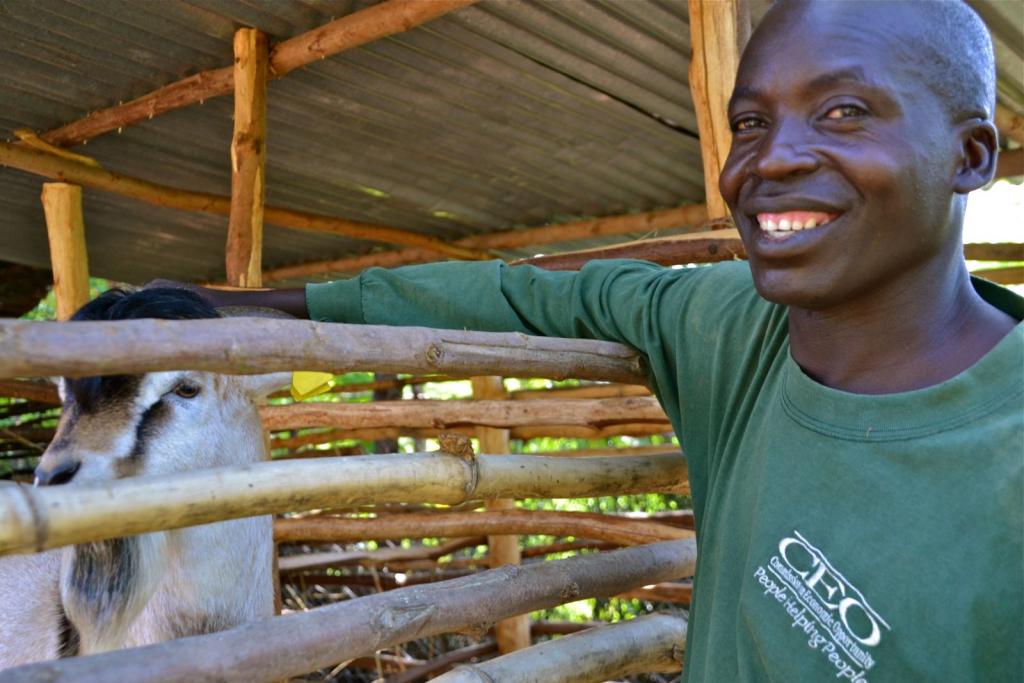
John Oboum has worked with CCAFS East Africa and partners implementing a number of climate-smart farm practices in Nyando. One of his most successful farm-projects to date has been breeding “super-goats”. The hybrid Gala goats are more heat tolerant, mature faster and produce milk, and fetch a good price on the market.
Credit: C. Schubert (CCAFS). Read more
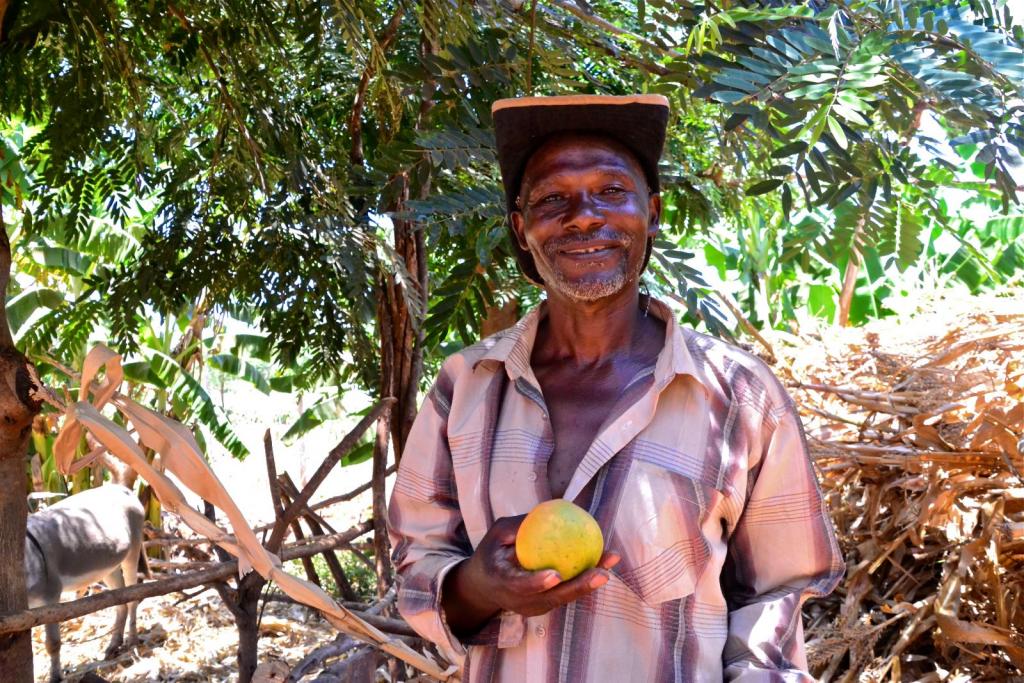
Armed by a series of fruit management trainings, including pruning and fertilizer application, Peter Nguli from Makueni Kenya increased his annual mango revenues from 220 USD to up to 660 USD. He's now able to invest in more income-generating climate-smart farm activities. Credit: C.Schubert (CCAFS). Read more
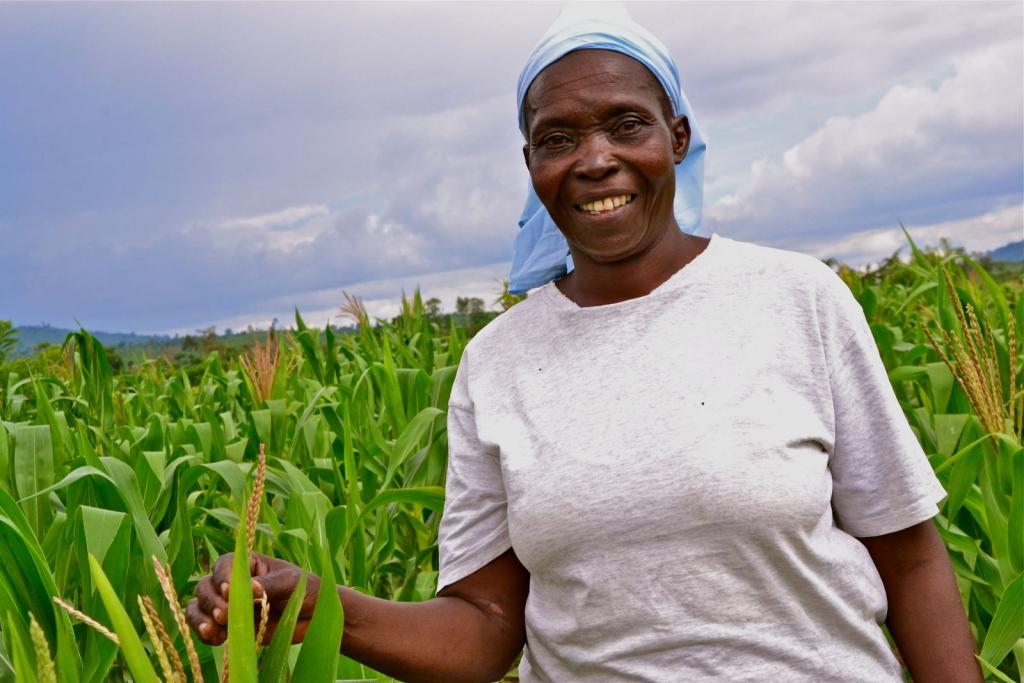
Peris Owiti from the Nyando site receives seeds and training on how to plant drought-tolerant maize and sorghum varieties on her demonstration plot. Inspired by the positive results, she is committed to support neighboring women to follow suit.
Credit: C.Schubert (CCAFS). Read more
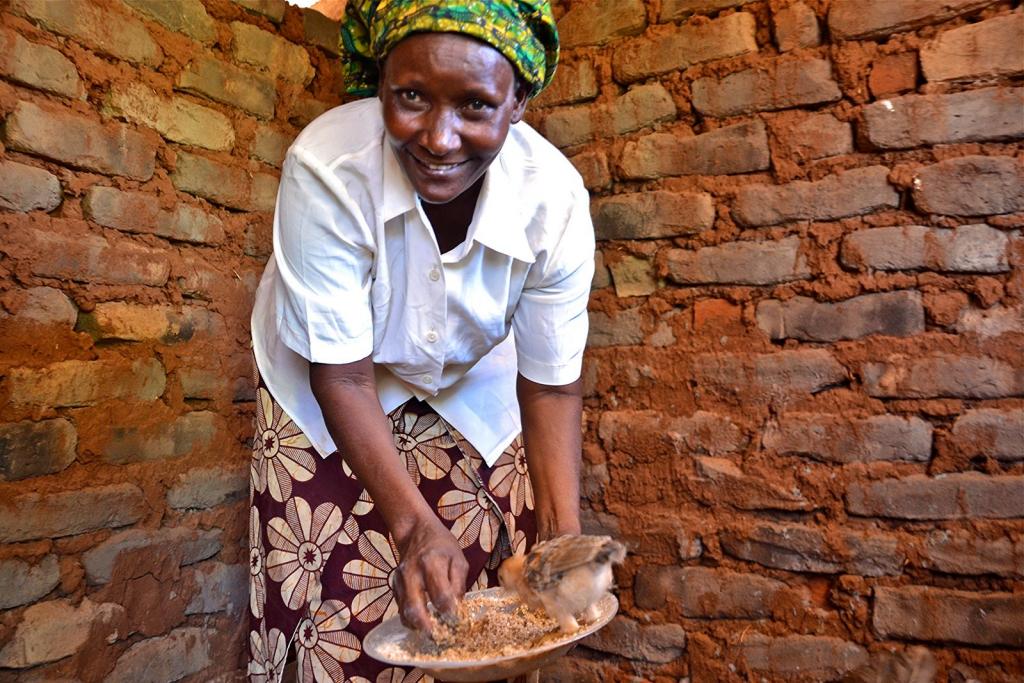
The program works together with the Kenyan Ministry of Agriculture, Livestock and Fisheries in Makueni, encouraging farmers to join and register groups for project training and funding. This way farmers jointly implement income-generating activities and share costs and risks. Farmer Ruth Nguli has now, for the first time together with her group members, ventured into a promising poultry business.
Credit: C. Schubert (CCAFS).
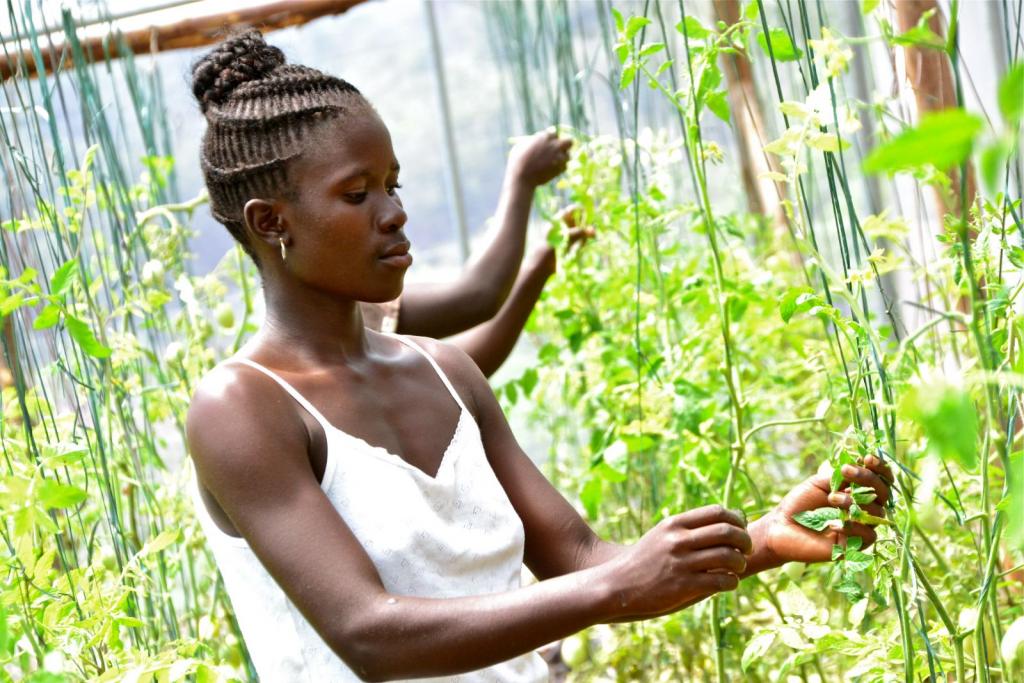
Getting youths engaged in agriculture is crucial for future food security and job creation. A youth group in Lower Kamula village in Kenya has, through support and training from the program and local partners, set up a greenhouse and fishpond. The group’s future plans include supporting other youth farm projects in the community. Credit: C. Schubert (CCAFS). Read more
Participatory research activities in action
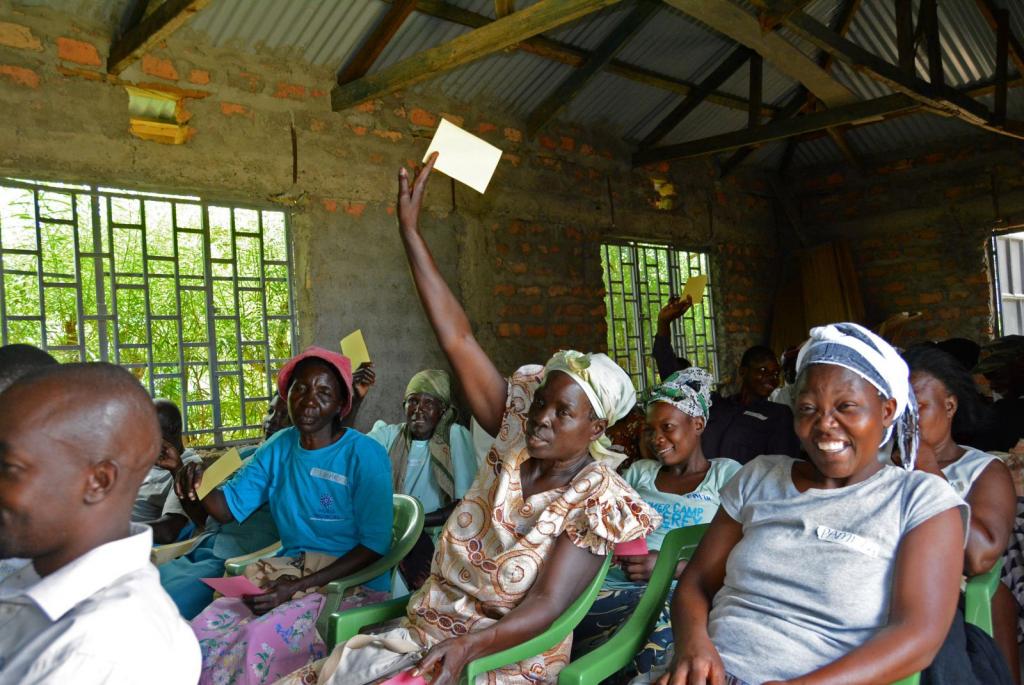
Continuously learning about each site is crucial to develop relevant climate-smart farm practices. A survey led by the International Livestock Research Institute (ILRI), had participants answer questions related to number of livestock per household, types of breeds and fodder used and water availability. The survey aimed to understand current livestock management practices to further improve rural livelihoods.
Credit: S. Kilungu (CCAFS). Read more
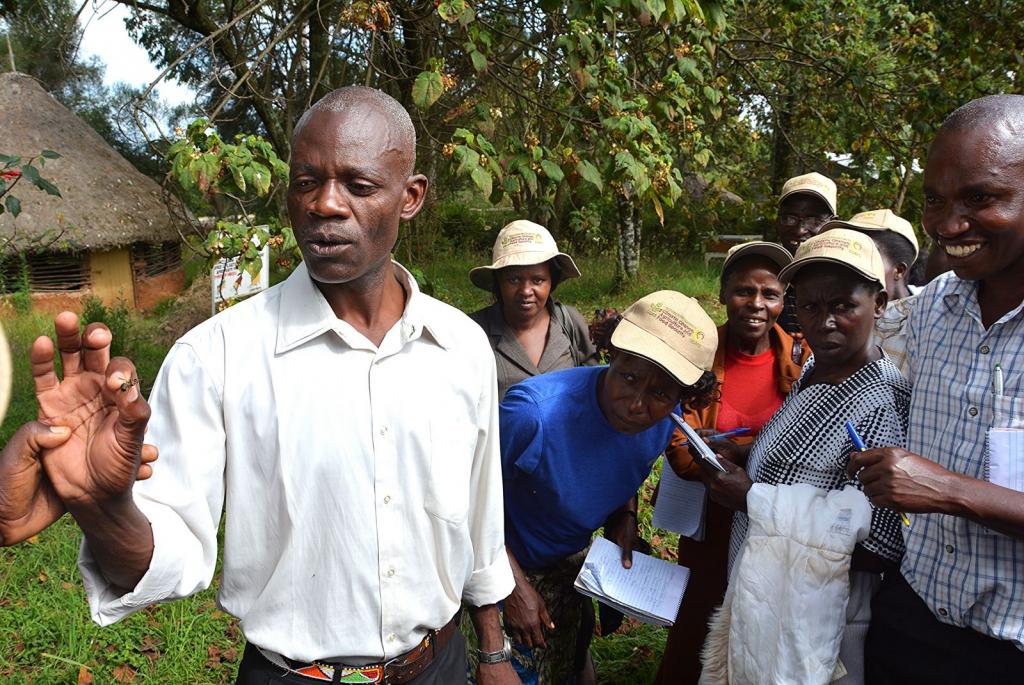
Last year, Nyando climate-smart village participants were connected with seven representatives from the Kenyan government and non-governmental organizations. Together the group ventured on a six-day climate adaptation learning journey, exchanging knowledge and experiences around climate-smart agriculture, while learning what a changing climate will mean for Kenya. Credit: S. Kilungu (CCAFS). Read more
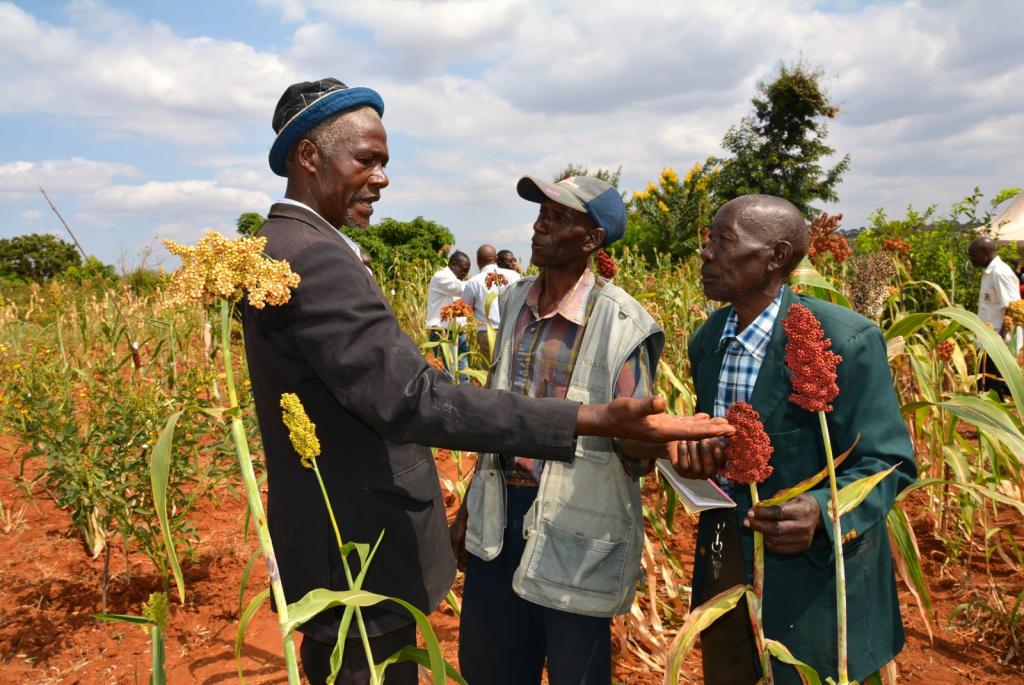
To get farmers inspired to test climate-smart seeds and practices, the project regularly organises “farmer-field day" visits. After analysing drought-resistant sorghum varieties, looking at growth patterns and resistance to pests, Peter Nguli shared his experiences and thoughts with neighbouring farmers during one of these visits.
Credit: S. Kilungu (CCAFS). Read more
Influencing climate and agriculture policies and development work
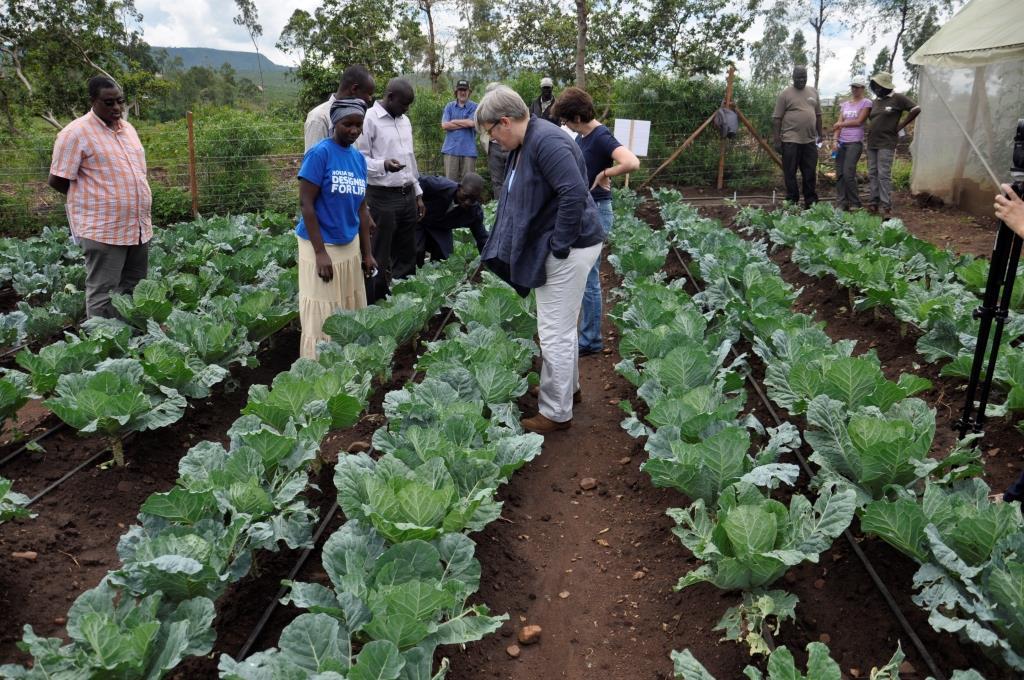
World Bank Group's vice president and special envoy for climate change Rachel Kyte recently visited the Nyando climate-smart village site. CCAFS aims to influence international investment and support towards climate-resilient food systems. Setting up these successful visits and exchanges is a crucial part in achieving this.
Credit: S. Kilungu (CCAFS). Read more
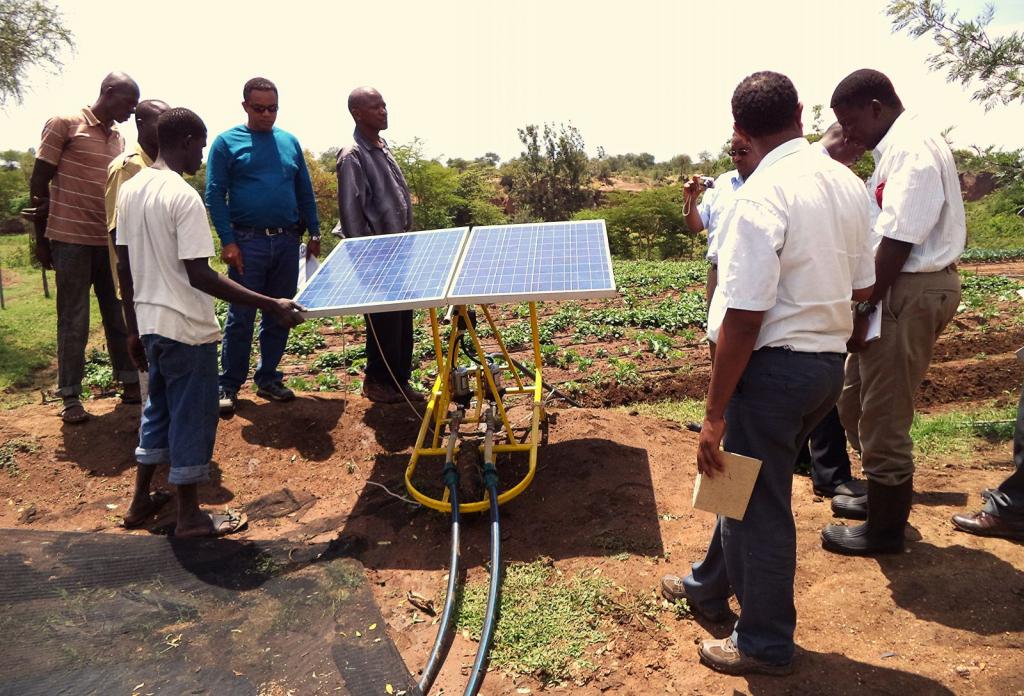
Visitors from the Ethiopian Government wanted to learn which climate-smart practices work in the Nyando area and which ones could potentially be replicated and scaled up in their own country. In early April, a delegation from the Rwandan Agriculture Ministry will visit the same site with a similar goal.
The solar panel in the photo is used to provide energy for pumping irrigation water, replacing a manual, time consuming pump. The water is directed to a tank and then used for drip irrigation! Credit: J. Mango (ICRAF).
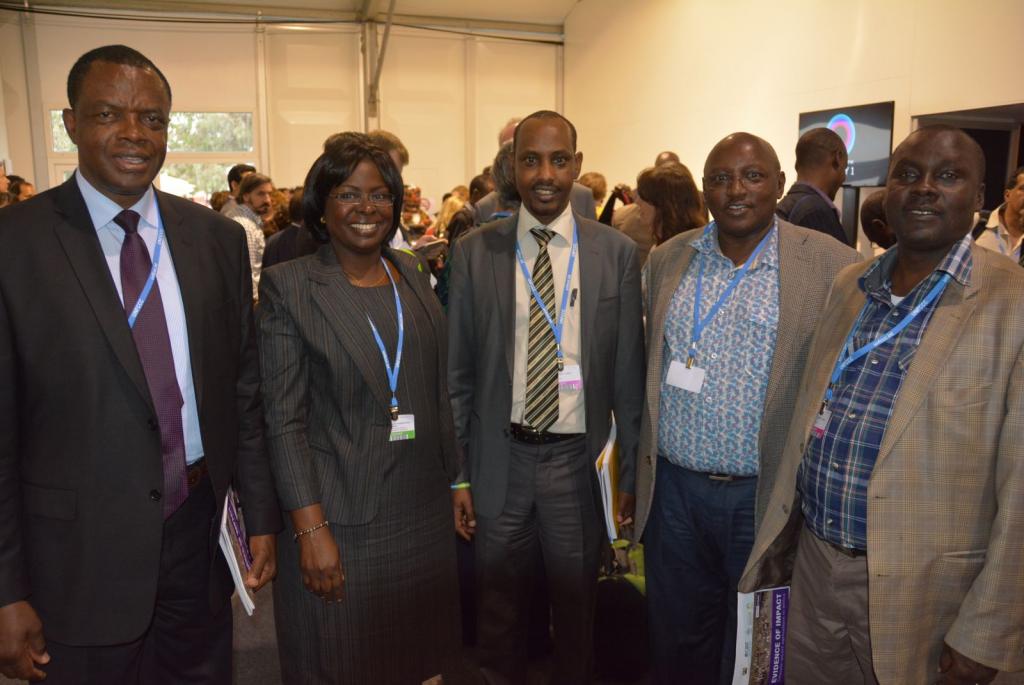
The East Africa program gathers regional policy-makers and country representatives to share experiences related to climate change and food security. These efforts seek to, among many things, inform the Global Climate Smart Agriculture (GACSA) Alliance and the United Nations Framework Convention on Climate Change (UNFCCC) negotiations. At the same time, efforts to link scientists with policy makers to address climate change, agriculture and food security issues and implement climate-smart agriculture practices in Africa are also being carried out. Credit: S. KIlungu (CCAFS).
Related Reading:
- Addressing climate change at the policy level
- How climate-smart farming in Kenya influences better policy-making
- Project takes action for climate-responsive policies in East Africa
- Project's quest to understand how climate science, policy and practice interact
- Climate-smart women farmers breaking gender barriers in Kenya
Story compiled by Cecilia Schubert, Communication Officer for CCAFS Flagship on "Policies and Institutions for Climate-Resilient Food Systems", and Vivian Atakos, CCAFS East Africa Communication Officer.

